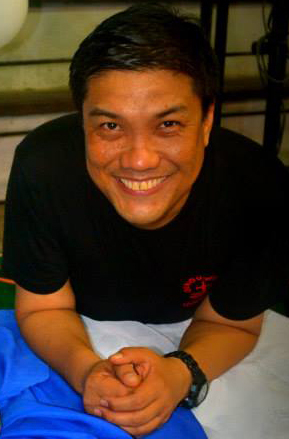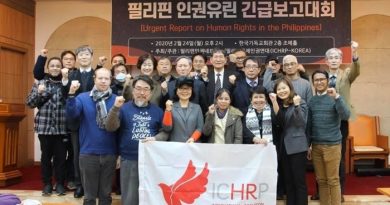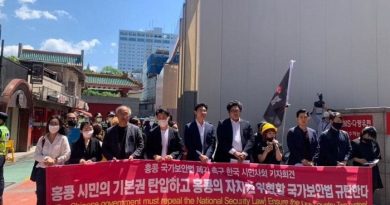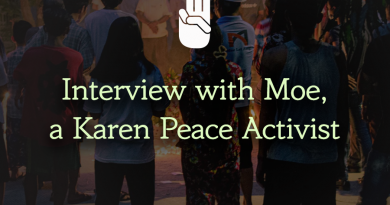Interview with Mr. Mervin Toquero (NCCP)
1. Why Duterte has become a dictator even though a big majority of people elected him with a hope that he will bring justice to the marginalized?
“Change is coming” was the campaign slogan of President Rodrigo Duterte. Running on an anti-illegal drugs and anti-corruption campaign, many Filipinos or 16 million voters pinned their hopes on this “change”. It turned out that those were just campaign slogans and promises. Poverty, landlessness, inaccessibility to services and inequitable distribution of resources worsened under the Duterte administration and the Covid 19 pandemic also underscored the problem of hunger.
What turned out to be a war against corruption, became a war against his political rivals, critics and dissenters with various laws weaponized against them. The war on drugs has victimized more than 30,000 mostly poor people while illegal drugs continue to be a big problem. Under Pres. Duterte, the Philippines is experiencing a human rights crisis and the climate of impunity has turned from bad to worse. Press freedom is likewise under assault and so is the freedom of expression and of association, greatly contributing to the severe shrinking of civic space in the country. The report of UN High Commissioner for Human Rights Michelle Bachelet has corroborated and confirmed the alarming situation.
The President’s authoritarian character has become more evident during the Covid 19 pandemic. The government, rather than treating the contagion as a public health emergency with social safety nets for the poor, responds to it as national security issue, which is evident in the former military generals, all males, who were the President’s appointees for the national COVID-19 response team. More than 100,000 have been arrested by the police and military from March 17 to date. Those arrested include the 21 people from an urban poor community who were protesting that they need food which prompted a threat from the President for security forces to shoot those who will protest and defy the lockdown. The arrests shows the glaring double standard of the government, for most of those arrested were mainly poor people, while its allies, including a senator, an undersecretary, and the Metro Manila police chief, were handled with kid’s gloves for their transgressions.
He appointed justices who seem very loyal to him at the Supreme Court and he appointed mostly retired military men on various cabinet posts. He has maximized the turncoatism of Philippine politicians who immediately switched their allegiance to him when he won and he formed a super majority in the Congress and Senate. The Senate and Congress acts like a stamp pad to his commands and has railroaded the passage of an Anti-Terrorism Bill which is meant to further silence critics.
Why? Turned out that just like his idol Ferdinand Marcos, President Duterte seems to want to perpetuate himself and/or his family and cronies in power. Investigative journalists have noted spikes in his wealth and assets and that of his family. With the International Criminal Court still investigating him for various crimes against humanity, having him or his loyal successor in place beyond the elections will ensure that he is shielded from accountability even after his term ends.
2. Duterte’s approval rate is still 85% (as of Dec. 2019), so he thinks only a tiny group of people have resisted him? What do you think about this?
While surveys are instruments to measure President Duterte’s approval rate, social media can also be a gauge to measure people’s satisfaction with the government especially since Filipinos have consistently reigned supreme in terms of social media usage globally. So trending topics on Facebook and Twitter can also show people’s dissatisfaction with the Duterte administration.
The CoVID-19 pandemic and the militarized lockdown that the government implemented to contain the spread of the virus showed how Filipinos took to social media in order to dramatize their discontent. From the huge hue and cry about delayed or lack of food assistance to poor families during the lockdown, to “#ProtectVico” calls when the Pasig City mayor was targeted for his maverick solutions, to calls to free the detained urban poor and jeepney drivers demanding food, these trending topics on social media have prompted government to at least cut back on some of its abuses.
The enhanced community quarantine also provided time for many Filipinos to fight back against social media trolls who seem to overwhelm every anti-government social media post prior to the lockdown. With extra time on their hands, activists and influencers fought back and turned the tides against the trolls. The hashtags #OustDuterte and #OustYouKnowWho, even particular demands of the Filipino people such as #FreeMassTestingNowPH, became worldwide trending topics.
Trending topics on social media are picked by traditional media, making them more popular, thus more influential. Like the hashtag #JunkTerrorBill which became very popular. Coupled with various official statements from the academe, churches, lawyers and even business groups that were highlighted by the media, principal sponsors of the Bill in Congress and others who voted for it later withdrew their support of the Bill.
However, there is nothing that can compare to large mobilizations of people to demonstrate dissatisfaction and to spark reforms. This was historically proven by EDSA People Power I and II which ousted two Philippine presidents. Even with the COVID 19 scare, the June 12 Independence Day rally, with proper social distancing and facemasks, has shown Filipinos are slowly mobilizing to show their dissatisfaction. But more is needed. Filipinos should go out by the thousands or millions to effect change.
The challenges are getting bigger everyday as state forces are increasingly becoming more violent and reactionary and all signs point to President Duterte signing the Anti-Terrorism Bill. But hope springs from the many young people who are showing their dissatisfaction on social media and increasingly, in the streets. Moreover, as the many inadequacies of government response to the pandemic gets exposed every day, the anger of the people will soon conquer their fears and they will express this into a transformative action.
The continued international attention to the human rights crisis in the Philippines will also encourage more Filipinos to act for change. When this happens, the real pulse of the Filipino people will matter more than the net satisfaction ratings.
3. We know that realizing economic justice is the key in resolving the present social conflict in the Philippines, please share your thoughts on this matter.
Economic justice, or the lack of it, has long been a festering issue in the Philippines and is the main reason why there is unpeace. Poverty, landlessness, inaccessibility to services and inequitable distribution of resources abound. Estimates show that 70% of Filipinos live below the poverty line while only a few elite families control 80% of the country’s wealth, especially the land. Government policies are hinged on neoliberal prescriptions and the country serves as a cheap source of raw materials and labor as well as market or dumping ground of surplus products or excess capital for First World countries.
Peace and economic justice in the country must be tangible and manifest through food on the table, decent jobs and wages, clothing, shelter, education and access to means that meet other basic needs. Unless this situation is addressed, the social unrest, will continue.
Peace advocates are pushing for the peace negotiations between the Government of the Republic of the Philippines (GRP) and the National Democratic Front of the Philippines (NDFP) to, in a principled manner, resolve the roots of the armed conflict that has been raging in the country for fifty years. The four substantive agenda of the GRP-NDFP peace negotiations which was enshrined in the “The Hague Joint Declaration of 1992” includes: respect for human rights and international humanitarian law; social and economic reforms; political and constitutional reforms; and, cessation of hostilities and disposition of forces. The first agenda was already signed by the principals of both sides in 1997. The second agenda, which peace advocates consider as the meat of the negotiations, will address most of the roots of the armed conflict and lead to economic justice. In 2018, an Interim Peace Agreement was already being worked out between the parties. It contained an agreement on agrarian reform and rural development as well as on national industrialization and economic development; a general amnesty for all political prisoners; and an agreement for a more stable form of ceasefire. The IPA was meant to facilitate negotiations for the remaining agenda on social and economic reforms, political and constitutional reforms, and a permanent cessation of hostilities and disposition of forces.
Sadly, the Duterte government has unilaterally terminated the peace negotiations. Instead of addressing the roots of the armed conflict, the government is adamant on implementing a military solution to win its war against insurgency. This has resulted in the escalation of human rights violations under a military-led all-out war that commands other departments of government.
But history has already proven that over-reliance on military might will not bring about peace. Only the silence of death.
Thus, peace advocates like the Philippine Ecumenical Peace Platform (PEPP) have unceasingly called for the resumption of the formal peace talks because if the roots of unpeace is not truly addressed and the hunger and suffering of the majority continue, there will be no peace and economic justice. We ask our sisters and brother in the international community to support this urgent call.




